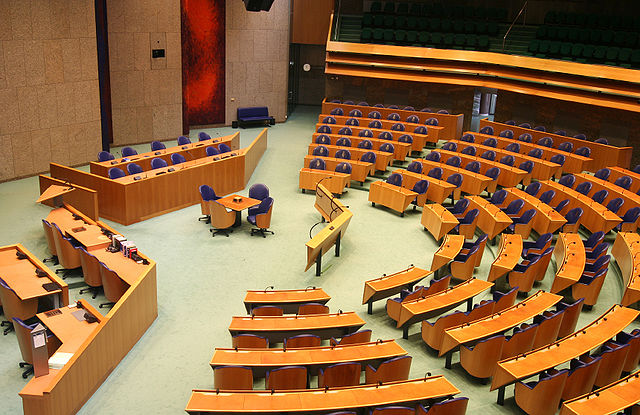A long quiet summer for politicians? What the papers say

With parliament now recess until September, it is time for ministers and MPs to get out the camping gear and head for a sunny destination. With less than a year to go before the next general election, how do the papers rate the cabinet’s performance this year?
Trouw reports that the final day of the parliamentary year was a quiet affair with a cabinet focused on ‘small, relatively unimportant debates, a mountain of motions and protracted voting’.
Although the third year of the second Rutte cabinet turned out to be ‘turbulent’– the refugee crisis, the referendum on Ukraine and the EU chairmanship – the cabinet did not ‘move from one crisis to another but managed to reap the benefits from the financial policies initiated in 2012’, the paper says.
Much of this success is down to the political will of the VVD and PvdA to make the coalition work for the entire period, the paper said, adding that this is something that voters would do well to validate in the next elections.
Middle ground
‘Stability and unity would be best served with a campaign that makes clear that the political extremes will not be able to deliver on election promises. The political middle ground deserves better than the polls are predicting’, the paper concludes.
The Parool in its analysis writes that the eight weeks of the parliamentary break will not be spent lounging on a sun bed but preparing for the next elections in hot little meeting rooms. And perhaps a good thing too, as the paper sees the worrying state of the Italian banks as a potential danger to an uninterrupted holiday.
According to the paper, the cabinet had relatively little trouble dealing with the year’s thorny issues. And where no consensus could be reached quickly, ministers from both parties happily postponed discussion, for instance on the self-employed, pensions and the result of the referendum on Ukraine.
Election
With the election looming, a lot hinges on the general budget debate on September 21, the paper says. Then ‘we will see which of the leaders have come back from summer camp in good form and who still has work to do,’ the paper concludes.
The Volkskrant concentrates on the 2017 elections and predicts that the success of some of the smaller parties could complicate coalition negotiations. ‘If pensions are cut ‘grey rage’ will almost certainly benefit 50Plus, the paper writes.
The paper sees no sign of a ‘left-wing spring’, pointing out that ‘the polls are predicting fewer than 40 seats for PvdA, SP and GroenLinks.’
The VVD’s Mark Rutte is the presiding premier in times of an economic upturn and will be hard to beat, the paper argues. The PvdA being a coalition partner he will, however, have to pick on a different bogey man this time. ‘It will be a pitched battle between VVD and PVV’, the Volkskrant predicts. ‘The message will be: if you don’t want Wilders, vote VVD.’
Revolt
And so to Wilders, who ‘rejoices with every poll result.’ The PVV leader has already warned that ignoring the PVV after the elections will end in ‘a revolt’.
According to the Volkskrant Wilders ‘often uses big words like ‘political revoltion’, ‘the European monster’ and ‘a patriotic spring’, usually to no great effect. In the last three elections Wilders’ voters ‘did not vote for other parties, they stayed at home.’
Parties will have to keep a beady eye on him, however. ‘Support for Wilders compared to the VVD may have gone down slightly but with the PVV leader’s repeated assertions of a link between the arrival of asylum seekers and cutbacks to care for the elderly and a lack of affordable housing, his appeal remains considerable’, the paper concludes.
Thank you for donating to DutchNews.nl.
We could not provide the Dutch News service, and keep it free of charge, without the generous support of our readers. Your donations allow us to report on issues you tell us matter, and provide you with a summary of the most important Dutch news each day.
Make a donation